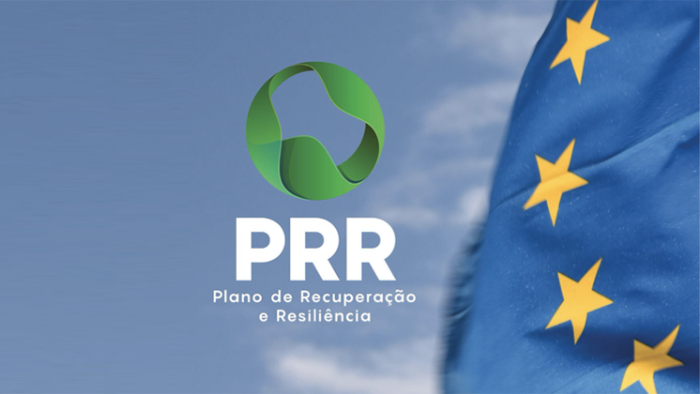News
Recovery and Resilience Plan: Protocol with social and solidarity sector
Recovery and Resilience Plan: Protocol with social and solidarity sector
Investment of 465 million

The Government and the social sector have signed a protocol within the framework of the Recovery and Resilience Plan to invest €465 million in social responses for children, people with disabilities and the elderly by 2026.
At the ceremony, held in Lisbon, Prime Minister António Costa stated that ‘social solidarity institutions, Misericórdias, mutual societies and cooperatives are essential’ for the implementation of the RRP, ‘because, in all areas, we have identified interventions that will be better carried out by these entities than they would be by the State’.
Noting the "huge need to respond in the area of ageing, the social inclusion of poverty, people with disabilities, the recovery of learning delays, weaknesses in the area of housing", António Costa stressed the great demand of the deadline: "by 2023, to make commitments, and by 2026, to spend the last cent", which adds to the other resources that the country will have at its disposal in Portugal 2030, whose general programming will be approved in the Council of Ministers.
Benefits of the social sector
The social sector is "the best placed to complete the integrated long-term care network with an additional 5500 beds", he exemplified, noting that the same is true for the increase in home care.
Also in housing, "to respond to the situations of people in great need or people in need of urgent and temporary housing", such as refugees, victims of domestic violence, homeless people, "the social sector has the best conditions, in conjunction with local authorities, to respond".
The Prime Minister pointed out two advantages of the response being made through the social sector: ‘the capillarity of the presence of these institutions in almost all parishes ensures that these investments are not concentrated, spreading throughout the country’; The social sector "represents 6% of jobs, and increasing responses through these institutions is creating new opportunities for young people entering the labour market", and these jobs are also distributed throughout the country.
For this reason, investments through the social sector "are a huge factor of territorial cohesion", added António Costa at the ceremony also attended by the Minister of State and the Minister of the Presidency, Mariana Vieira da Silva, and the Minister of Labour, Solidarity and Social Security, Ana Mendes Godinho, and also attended by the Minister of Planning, Nelson de Sousa, and the Minister of Health, Marta Temido.
Networking
The Prime Minister stressed again that "this plan is not for the State, it is a plan for the whole country and we can only implement it by mobilising all partners and working in a network".
The RRP has the function of "recovering from the storm and better preparing ourselves to avoid or resist other storms", because "this time Europe did not do as in the previous crisis, in which it thought that it was cutting social expenditure, not taking care of companies and employment, that the crisis could be overcome", he said.
Crisis was revealing
The Minister of State and the Presidency, Mariana Vieira da Silva, said that the results achieved in the years before the pandemic crisis – “since 2015, we have lifted around 550,000 people out of poverty, we have had some of the best results in reducing inequalities, we have reduced early school leaving, we have increased students benefiting from School Social Action in Higher Education by 30%” – “have made a crisis that is very difficult, less difficult than it would have been”.
But "the crisis has also revealed other problems, notably in the area of ageing, making more evident the need to articulate the social response and the health response", such as in employment, housing and "emergency responses in times of crisis", and also showed that the digital and climate transitions would bring cohesion challenges that needed to be prepared for.
"The recovery must promote social cohesion" and the RRP has a set of responses, which exceed 30% of the plan, "dedicated to social vulnerabilities, strengthening the social response, the welfare state, the capacity to lift population out of poverty cycles, but also to respond to the middle classes with conditions so that they can realize their life projects", he said.
Mariana Vieira da Silva highlighted the strengthening of the National Health Service: improve primary health care, complete the integrated long-term care network with 5500 new beds and home support, complete the mental health response.
He also mentioned the answer in housing: respond to 26,000 families living in unworthy dwellings, and respond to emergency situations with 2,000 dwellings.
And it concluded with the social responses: more places in crèches, homes, innovation in home responses, and helping disadvantaged communities in the two metropolitan areas out of poverty.
Virtuous partnership
The Minister of Labour, Solidarity and Social Security, Ana Mendes Godinho, said that the signing of this agreement is "a decisive reinforcement in the virtuous partnership between the State and the social sector to implement the RRP in an efficient, useful for people and transparent way", and that it substantially increases the commitment for the two-year period, renewed on 5 July), which ‘reinforced the partnership by €134 million to meet people’s needs’.
Ana Mendes Godinho said that the agreement is a way to "transform the Social Commitment Porto in actions’ using ‘unprecedented resources’ for social responses, of which he referred to the ‘increase of 28,000 places for ageing’, and a generation of forms of home support.
He also highlighted the continuous joint work between the government and the social sector, which allowed to solve many problems that arose during the pandemic differently from the rest of Europe, avoiding situations that occurred in other countries.
He referred in particular to the home testing programme, the Adaptar+ programme to implement prevention measures in the home, and the programme Marees, ‘which has already covered more than 20 400 people out of work to replace quarantined or sick workers’.
Source: Government Portal
